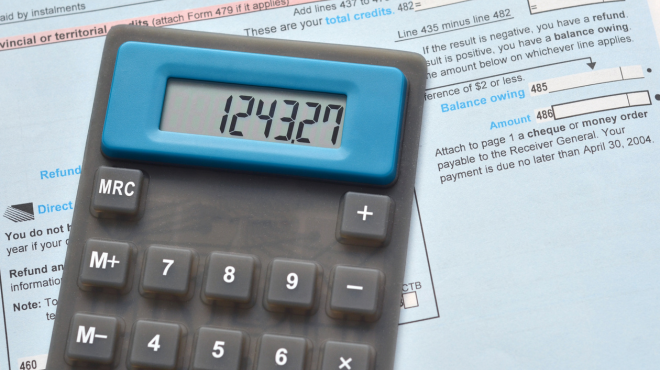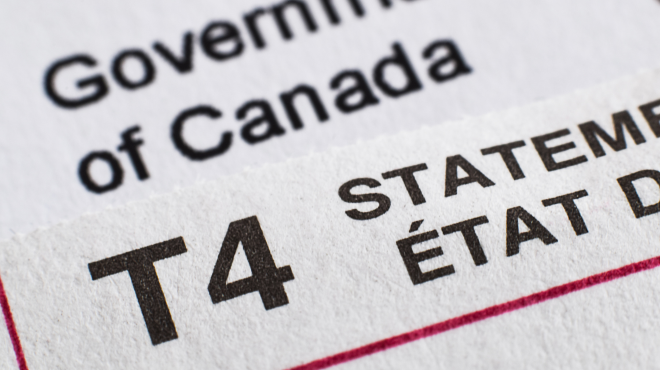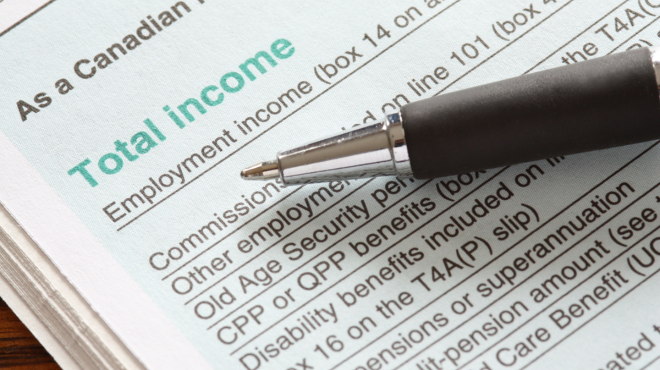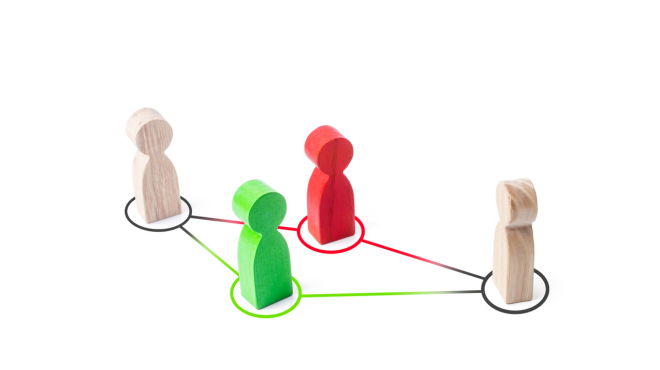ALL ABOUT PERSONAL TAXES
Preparing for your personal taxes
Make sure you have all of your documents gathered. Get up-to-date on the latest changes to personal tax rules (check out our updates for the 2019 and 2020 tax years).
If you’re a sole proprietor, you will report your business income on your personal tax return. Corporation owners, we’ve got all of your corporate tax questions.
Gather your T slips for personal income taxes
This might seem obvious, but you’ll have to report all of your income on your tax return.
T SLIPS
Start by rounding up any T slips you received from your employers or investment accounts. Wondering what kinds of T slips are out there?
PERSONAL INCOME T SLIPS
T4: Employment Income
T4A (OAS): Old Age Security
T4A (P): CPP Benefits
T4A: Scholarships/Bursaries, other pension or superannuation
T4E: Employment Insurance Benefits
T5007: Social Assistance/WCB
T4RSP: RRSP Income (Withdraws)
T4RIF: RRIF Income
INVESTMENT INCOME T SLIPS
T3: Estate/Trust/Mutual fund income
T3/T5: Interest and dividend income
T5013: Limited Partnership Income
T600: Canada Savings Bond
You’ll also need to report capital gains/losses, foreign income, sale of investment or rental property, sale of principal residence, alimony/child support received and stock options.
Rental property income
If you own a rental property, you may be surprised that you owe taxes, even if your cash flow is negative. Remember that you can only deduct what you pay in interest on your mortgage – not what you pay on your principal balance. We have a full rundown on what you can and can’t deduct when it comes to rental property expenses.
Personal tax deductions
You can deduct RRSP contributions, union or professional dues, employment insurance benefits repayments, some legal fees, and moving expenses (if you moved for work and your employer did not cover the expense).
Also included as personal tax deductions are investment interest and management fees, and childcare.
Childcare tax deduction
Parents know how childcare expenses can add up. The good news is that if you pay for childcare so you and/or your spouse can work, you can claim a deduction on your personal taxes. The person with the lower net income should claim the expense. Nannies, daycare, day camps or sport camps where the primary purpose of the camp is childcare all qualify for this deduction.
Tax credits
Charitable donations: Do good – and the CRA will reward you. You receive 50% in tax credit for all donations to a registered charity over $200 for (the first $200, you only get 25% in tax savings). Make sure you keep your tax receipt.
You also get tax credits for tuition fees (reported on T2202(A), interest paid on student loans, medical expenses, and disability tax credit (reported on T2201).
What retirement plan is right for me?
Investing for retirement is vital for staying financially fit and securing your future. An accountant or financial advisor can help you decide if an RRSP or TFSA is best for you, but here are a few basics to keep in mind.
Registered retirement savings plan (RRSP)
RRSPs are best for people who expect to be in a lower tax bracket when they retire. RRSPs save you tax money now, but you will pay tax on the money when you withdraw it in the future.
Your RRSP contribution limit is based on your prior year’s “earned” income and accumulates unused contribution room year upon year. We can advise you on how much you can or should contribute to your RRSP, but look on your Notice of Assessment for your RRSP contribution limit before you invest.
Know your Canada RRSP contribution limits
Always check your RRSP contribution limit before you contribute. If you invest more than you’re allowed, you will be taxed severely on the over-contributed amount. You need to withdraw the over-contributed amount and you are taxed on that (unless you file an election prior to withdrawal). Once it’s withdrawn, you need to calculate the number of days you were over-contributed, and the exact amounts, so you can determine the penalty. This can be a long, complicated process. As accountants, it’s our least favourite problem.
Tax-Free Savings Account (TFSA)
The TFSA started in 2009 as a way to earn money with investments and not pay any tax on gains, dividends or income. You’re allowed to invest a certain amount each year (2020 is $6,000), but it’s cumulative. The total limit for 2020 is $69,500, for those eligible since the start. Unlike RRSPs, you do not get a tax break now by investing in your TFSA. However, when you withdraw the money, you do not pay any taxes on it.
You can let your TFSA investments grow for your entire life, then convert your capital into a steady stream of tax-free income when you retire.
CRA personal tax penalties for filing late tax returns
Personal taxes owing are due April 30. If you are self employed, your personal tax filing deadline is June 15 – however, your tax owing is still due April 30. If you’re not a sole proprietor or farmer, your taxes are due to be filed April 30.
On May 1, interest begins to compound daily on any tax you owe the government.
If you miss the filing deadline and owe taxes, you will have to pay a filing penalty of 10% (5% for first time late filers). Interest accrues at a rate of 1% of the balance for each month your return is late.
As you might guess, there are also penalties for making false statements and omitting any income you earned.
Is there a penalty for filing taxes late if you owe nothing in Canada?
No, there’s not. But we always recommend filing your taxes on time. It’s a big risk to take! Also, if you qualify for the Canada Child Benefit, OAS or other Service Canada benefits and don’t file on time, you may not receive your money.
Tax planning and instalments
If you owe more than $3,000 in personal tax or GST, you will need to make tax instalments.
Personal income tax instalment deadlines are March 15, June 15, September 15 and December 15 (or the next business day if the 15th falls on a weekend or holiday).
There’s lots you can do and think about as you tax plan for next year. Let’s talk! Stress-free tax seasons are a thing.























